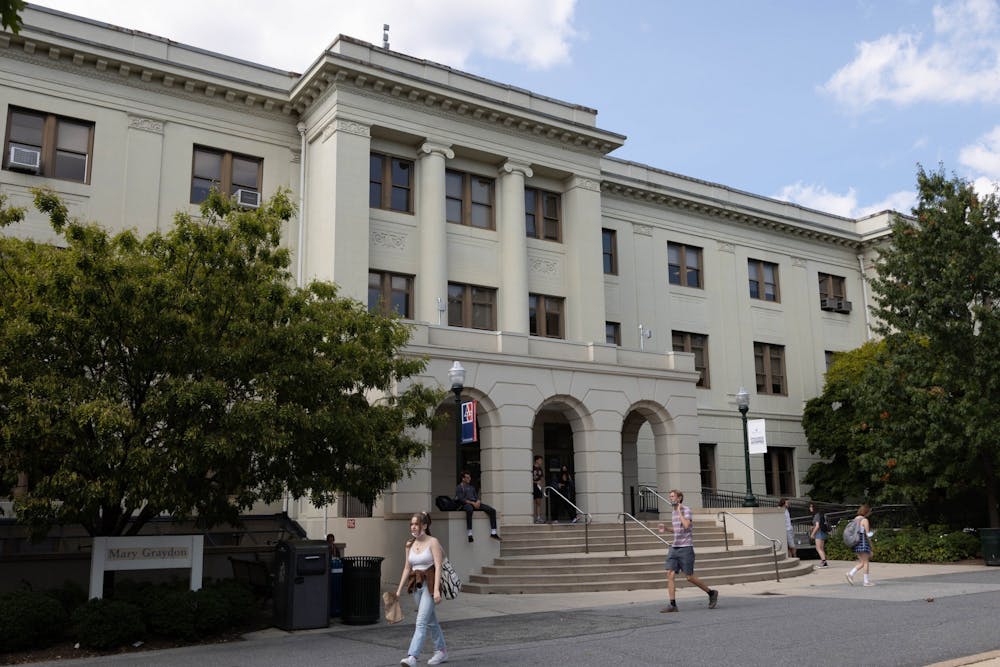American University’s police department recently joined over 150 law enforcement agencies in taking the 30x30 Pledge, which aims to increase the representation of women in police recruit classes to 30 percent by 2030.
AUPD has already surpassed that goal but took the pledge to show its continued support for increasing female representation in policing, University officials said.
“Being part of this initiative is to show our continued effort to support more women in law enforcement and support our strategic goals here at American University, to make our agency one that represents that and the community that we represent,” said Phillip Morse, assistant vice president of university police services and emergency management.
According to Morse, 36 percent of all AUPD officers and 30 percent of officers at the command level, i.e. in leadership positions, are female.
In the U.S., 12 percent of all sworn officers and 3 percent of those in leadership are women, according to the 30x30 Initiative’s website.
According to its website, the 30x30 Initiative is a “coalition of police leaders, researchers, and professional organizations who have joined together to advance the representation and experiences of women in policing agencies across the United States.”
When the initiative began, Morse said, he worked with School of Public Affairs professor John Firman to review and offer feedback on the initiative, much of which he said the initiative implemented.
“You can recruit women to law enforcement agencies and you can meet this 30x30 goal, but can you retain [it]?” he said, explaining that this was a key point the initiative had been missing. According to Morse, having women represented in leadership positions and in the hiring process is one way to successfully increase retention.
As part of its participation in the initiative, AUPD officers took part in the first in a series of listening sessions facilitated by 30x30 and Mark43, a public safety technology company. The sessions bring together female police and allow police departments to “share insights and problem solve,” according to a Mark43 press release.
Ganesha Martin, vice president of community affairs and public policy at Mark43, an organization partnering with the initiative, said the 30x30 initiative aims to address not only the underrepresentation of women in policing but also to reform policing. Martin, who previously worked in the Baltimore police department, said “what communities were asking for was less excessive force, more community involvement.”
“What we know from the statistics about women is they shoot less, they problem-solve more, they are sued less, they are less likely to use excessive force. And so to me, the question was, as we're reimagining public safety, and as we're reimagining policing, and we're talking about police reform, what's women's role in that?” Martin said.
Like Morse, Martin pointed out that a shift in focus from not only recruitment but also retention was necessary to enact lasting change. She said offering benefits such as parental leave, flexible hours and the ability to pursue further education would create a stronger support system that encourages retention. Martin also said that representation of women, especially in leadership positions, was beneficial to both recruitment and retention.
“There is science and research that show that women are successful in law enforcement, and make great police officers for the community. I think the reason that they're underrepresented is we don't show them that success,” Morse said.





